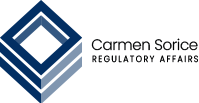For Companies operating in the food industry, understanding the EC Framework Regulation 1935/2004 is crucial. This Regulation lays down the basic principles for all materials and articles intended to come into contact with foodstuffs.
What the Rules of Procedure
The Reg. EC 1935/2004 lays the foundations for ensuring a high level of protection of human health and consumer interests. It establishes that materials in contact with food must not release substances in quantities likely to endanger human health or resulting in an unacceptable change in the composition of foods or a deterioration in their organoleptic characteristics.
Obligations for Companies
Companies must ensure that materials in contact with food comply not only with the framework regulation but also with all the specific measures that may apply.
Systems and procedures must be implemented to ensure that:
- The materials used are suitable for their intended use and meet safety requirements.
- It is maintened a complete and updated documentation that can track the compliance of each product.
- Regular checks and tests are carried out to ensure that there is no migration of dangerous substances.
- The traceability of products is ensured at all stages to facilitate the control, recall of defective products, information to consumers and the attribution of liability.
- There should be adequate labelling of the materials so that they can be used properly.
Good Manufacturing Practices (GMP)
The regulation underlines the importance of Good Manufacturing Practices (GMP). Companies must adopt GMP to ensure that FCM production takes place under hygienic and controlled conditions, preventing contamination and ensuring product safety and compliance.
Adherence to EC Reg. 1935/2004 is a legal obligation and an ethical responsibility for Companies in the sector. Understanding and applying the provisions of the Regulation is essential to protect consumers and maintain confidence in the food market.



